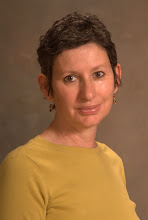Years ago, right around my son Joe's second birthday, I embarked on a mission to find the right pre-school for our family. There were many factors to consider -- the school's philosophy, the physical plant, the number of students, the level of parental involvement. The list was long. At that time in the early 1990s, the baby-boom generation was producing so many offspring, finding a spot for your child in a "good" L.A. pre-school was a highly competitive endeavor. And because I was probably a little underemployed at the time, I welcomed the challenge.
Using our combined charms, Joe and I secured a place in a hippie-style nursery school tucked into a grassy corner of L.A.'s trendy Silver Lake district. A serene, Japanese woman named Betty operated the school, and lots of laughing, precocious youngsters were under her tutelage. I was relieved and happy. Joe and I were no longer drifting. We had landed in a school where we could be ourselves, and Nick, who was then a newborn, could follow behind. Before I found this school, however, it occurred to me that I was overworking the problem, that I was behaving as if it were graduate school rather than a few hours of daycare. But in retrospect, my instincts were right. That little school had a huge influence on our lives and anchored us in many ways. It was Betty's advice I sought later when Nick took on the persona of an all-powerful toddler dictator. Some of the friends we met there, and many of the lessons we learned, continue to be part of our family today. It may have been just a pre-school, but it was an important place to learn.
This 1990s moment has been brought to you, because I'm having a distinctly deja vu experience. The current challenge is to locate a medical oncologist, and the search is dredging up that untethered feeling I had back then. Because of staffing issues, only one of the medical oncologists in the Breast Center at USC/Norris is taking new patients at the moment. So I'm interviewing the Norris doctor and another female oncologist in Pasadena, and I'm talking to people for other referrals.
From what I'm told, the medical oncologist plays a vital role in the patient's long-term care. The oncologist tracks you for years to come, and is at the forefront of the fight to ward off recurrence. The doctor-patient relationship matters here, as evidenced by the terms people use when referring to these specialsts. One friend told me that she believes her mother's oncologist for breast cancer "walks on water." So you get the sense that this is an important relationship. (I looked up the water-walking oncologist, and he is at least a decade older than I am, which makes him too close to retirement for serious consideration.)
At the outset, the medical oncologist will provide a context for my hormonal study, which I received yesterday. The study showed that I was estrogen-positive and progesterone-negative, and for the advanced readers, my Her-2/neu receptor was not amplified. Quick explanation of Her-2/neu: Instead of being hormone-driven, about one-third of invasive breast cancers develop because oncogenes, which are tumor genes present in our bodies, start to send out devious messages telling cells to grow uncontrollably. But the Her-2 thing is not my situation. While I believe that it's a good sign that I'm estrogen-positive, since drugs can suppress it, the hormonal study marked the estrogen number at 15%. At this writing, I have no idea what that percentage means. I need the expertise of a medical oncologist.
Later today, I will see the radiation oncologist, so we are moving forward on that front. And once I get the medical oncologist on board, I expect that my feeling of being at sea will subside. For now, I keep repeating the advice I learned from the sage Betty, "This, too, shall pass."
12/4/07
Subscribe to:
Post Comments (Atom)





No comments:
Post a Comment